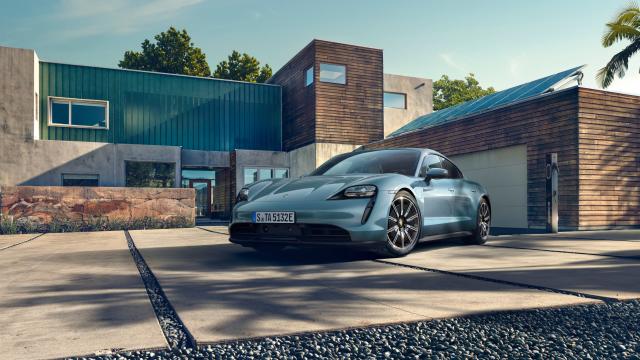Porsche is probably the last company you’d synonymise with “mobility,” since it said itself that the “Porsche sports car will be one of the last automobiles with a steering wheel” even after the world goes autonomous. But hey, everybody is a mobility company now, or wants to be — even Porsche. It’s the hot new thing.
If you asked your dog and your dog spoke a language other than garbled barks, they would surely admit that they, too, are a mobility company. That’s just life.
Mobility is on Porsche’s mind for the future, the company’s finance and IT boss Lutz Meschke, the same guy who gave heartfelt remarks about Porsches keeping steering wheels as long as possible in 2017, told Autocar recently. But Meschke also said Porsche won’t be able to depend on selling cars as a means of survival as a company in the future, and that it has to work on investing in other means of transportation now.
It’s a wise prediction, given that cities are slowly trying to filter cars out of the mould.
The same goes for governments and certain types of car power.
For Porsche, that means investing in companies attempting to solve issues of car traffic in cities. Porsche has to make money somehow, after all, and Meschke said that means thinking about “investments, start-ups, [and] profitability in other businesses.”
From Autocar, which has more of Meschke’s quotes here:
“Cities want to reduce traffic, therefore we have to look for solutions which fit our brand. Shared mobility is not enough – it will not bring us significant profit share,” said Meschke. “If you want to get a piece of the cake, you have to think about investments in other brands or in traffic solutions. […]
“Today our customers are willing to buy two, three, four Porsches, but in future, maybe they will buy one or two and for mobility in cities, they will use other services. We have to think about business models that can balance these potential losses.”
The story mentioned Porsche’s relatively new subscription service, launching in 2017 with a limited audience and tiers that went for both $2,900 and $4,400 per month, and how Meschke called it a “good starting point.” But it won’t make up for the loss in car usage over time, he said, meaning Porsche has to get in on the money somewhere else.
That means investments into things like mobility, but Meschke didn’t elaborate further than the above on what that means yet.
Regardless, though, Meschke said something that sounded rather familiar in the Autocar story — that, of course, Porsche has “to try to keep direct selling [cars] as long as possible.”
